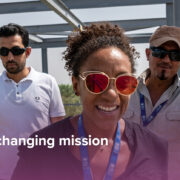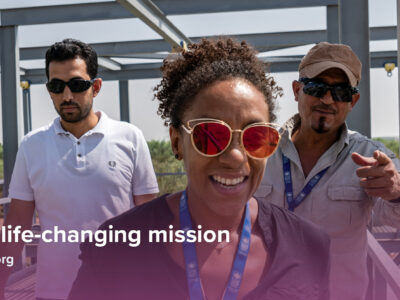UN Women, grounded in the vision of equality enshrined in the Charter of the United Nations, works on the elimination of discrimination and violence against women and girls; the empowerment of women; and the achievement of equality between women and men as partners and beneficiaries of development, human rights, humanitarian action and peace and security. UN Women provides support to the Government of Mozambique in meeting its gender equality goals and in building effective partnerships with civil society and other relevant actors. Placing women’s rights at the center of all its efforts, UN Women leads and coordinates United Nations system efforts in Mozambique to ensure commitment to gender equality. Therefore, consolidating the institutional capacity of the Country Office is one of the enablers to increase delivery. It is in this context that a Technical Assistant is needed to support the Programme Unit.
Mozambique is prone to climate disasters due to its geographical location in the intertropical convergence zone and downstream of river basins with neighboring countries in the Southern African Region, its long coastline and the existence of extensive areas with an altitude below sea level (INGC, 2019). From 2017 up today, Mozambique went through an unprecedented climate disturbance including cyclones namely Idai, Kenneth, Eloise, Freddy and floodings, conflicts in the Northern Mozambique and COVID-19. As of April 2023, the conflict has displaced over one million people, both IDPs and returnees.
Humanitarian crises in Mozambique are becoming increasingly complex and protracted, with most displacements lasting multiple years, meaning that the provision of short-term, life-saving services are becoming less and less sufficient, with people affected by crisis requiring additional skills and opportunities for survival, especially, women and girls. Pre-existing gender-based discrimination and inequalities exacerbate the impact of crises on women and girls and reduce their likelihood to receiving the humanitarian services they need to survive and recover. Inequality tends to worsen in humanitarian contexts, leaving women that are already facing enormous challenges, doubled with exacerbated inequality and fewer options. Intersectional vulnerabilities can additionally further determine how people are affected, among other women with disabilities, women-headed households, adolescent girls, women affected by HIV & AIDS and older women. A recent multi-year humanitarian funding evaluation found gender to be the single biggest determinant of a person’s agency in and out of crisis (ODI, 2019). When displaced, women and girls face an elevated risk of gender-based violence including trafficking, prostitution, child and forced marriages unwanted/teen pregnancies.
The aim of UN Women’s engagement in humanitarian action is to ensure effectiveness in addressing gendered needs, working across the humanitarian– development–peace continuum, and embodying two approaches: i) supporting the mainstreaming of gender in the coordination, planning, prioritization and financing of humanitarian responses in the immediate aftermath of emergencies and humanitarian crises; and ii) contributing to long-term recovery and protecting the rights of women and girls in emergencies and protracted crises through the nexus approach. UN Women’s triple mandate of enabling gender equality and women’s empowerment through coordination of the UN system, normative and intergovernmental engagement and development-focused operational programming will significantly improve the effectiveness of humanitarian action, reduce vulnerabilities, including to gender-based violence and sexual exploitation and abuse, and aid women’s recovery. The role and expertise of UN Women has become increasingly critical with a continuous cycle of crises, including the COVID-19 pandemic, and is aligned with the 2030 Agenda for Sustainable Development in addressing not just humanitarian assistance but also the root causes of crisis.
Building on its tripartite mandate, its new role as a full member of the Inter Agency Standing Committee (IASC) and its journey for the implementation of the Strategic Note (2023-2026), UN Women Country Office intends to strengthen its engagement to integrate gender in the humanitarian action, strengthen humanitarian coordination and respond to the immediate and long-term needs of women and girls victims of multiple and recurrent crisis. It is in this regards that UN Women Mozambique is seeking to recruit an International Consultant – Gender and Humanitarian Advisor who will work under the overall guidance of the UN Women Representative to oversee UN Women Humanitarian Action in close collaboration with the Country Programme Team based in Maputo and in the field, specifically in the Northern and Central Provinces.
Objectives of the assignment:
- Provide administrative and technical support provide advisory services at the strategic and technical levels, leveraging the newly membership of UN Women at the IASC;
- Represent UN Women and advocate for gender equality and women’s empowerment by engaging with the National Counterparts, UN Agencies, Humanitarian Actors; CSOs, particularly Women’s Organizations;
- Identify areas of work and opportunities of collaboration with key partners, accordingly to the needs of women and girls;
- Work closely with the Thematic Lead Teams, especially the WEE, EVAW and WPS; follow up on different interventions in the Northern Mozambique and timely inform on the way forward and making sure that the triple nexus is applied;
- Participate in the Country Office Resource Mobilization Efforts;
- Support the CO to produce high quality and timely reports; and
- Support Country Office´s efforts in Resource Mobilization in the above areas.
Scope of Work:
The Consultant will contribute to the achievement of the UN Women’s results on:
Output 4.1.1 More women and girls affected by conflict and intersecting multiple discrimination are empowered to actively participate in and lead conflict prevention, community-led stabilization, social cohesion, peacebuilding, and recovery initiatives (aligned with CF 4.1- SN Output 1.1.1)
Output 4.2 UN Women effectively leverages and expands its partnerships, communications and advocacy capabilities to increase support for and financing of the gender equality agenda, while securing sustainable resourcing for the delivery of its own mandate.
Output 6.1.2 Improved State’s accountability for the implementation of global norms and standards through the review and/or development of gender responsive policies, strategies, national plans, laws on EVAW, WEE, and WPS, DRR & HA.











Comments